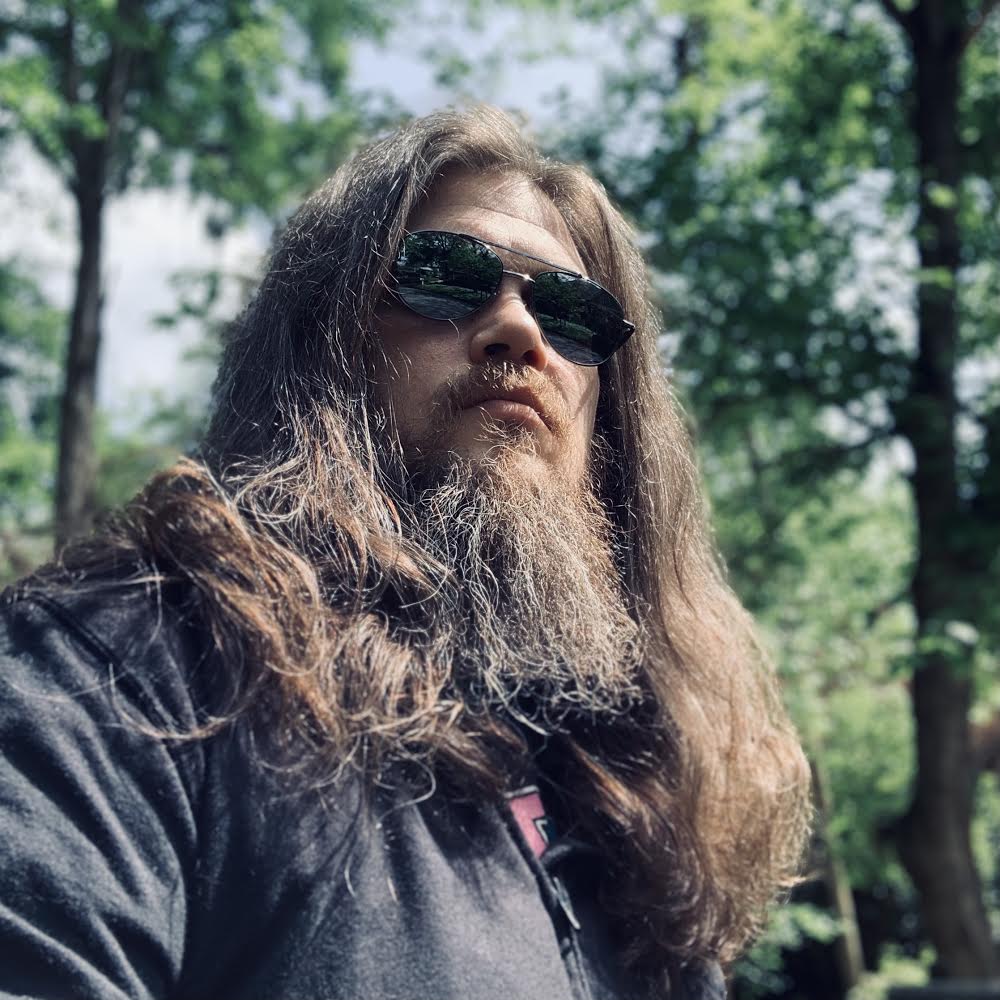Loki variants explained
How the many comic book lives of Loki could influence his Disney Plus show and the MCU's path forward after Tom Hiddleston
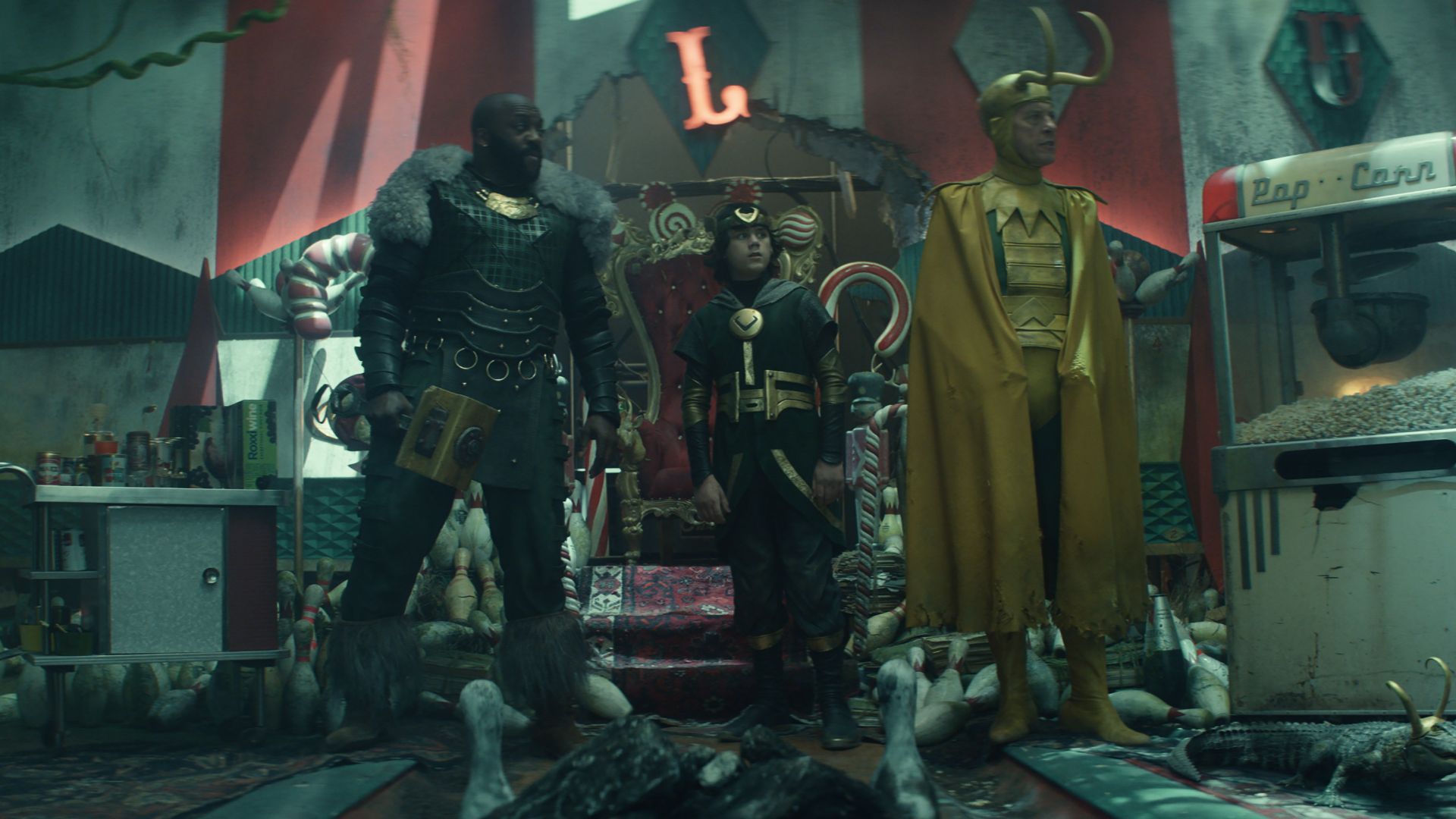
Loki episode 6 is now streaming on Disney Plus, and the finale of the show's first season (with a second season already confirmed) puts the concept of variants of Marvel characters and concepts in the spotlight - beyond even just variants of Loki himself.
With the season finale also setting up the next chapter of the MCU, which seems to draw heavily on the Multiversal ideas presented in Loki, it's now more relevant than ever to consider how the concept of variants of known characters could play into what's coming up.
Spoilers ahead for Loki season 1.
Loki season 1 wraps up with the Loki and Sylvie meeting the 'man behind the curtain' of the Time Variance Authority (TVA), revealed as He Who Remains, a twist on a Marvel Comics character associated with the TVA whose MCU adaptation has been established as a variant of Kang the Conqueror, the villain of the upcoming film Ant-Man and the Wasp: Quantumania.
He Who Remains perishes in Loki episode 6, setting off a chain reaction of seemingly infinite branching timelines - at least one of which appears to have a variant TVA already established - and will apparently lead directly to What If...?, Disney Plus' upcoming MCU animated series showcasing different 'variant' versions of popular MCU characters and stories in each episode.
And of course, the TVA themselves, including Ravonna and Mobius, are all variants.
But the idea of variants in the MCU all starts with Loki - so many variants of Loki - some of whom have rich comic book histories of their own, and some who likely have a bright future ahead in the MCU.
We'll dig into the Loki variants from comic books whose stories inspired, and will continue to inspire MCU adaptations, as well as his many MCU identities that have already been established.
Get the best comic news, insights, opinions, analysis and more!
Loki Variant: Lady Loki
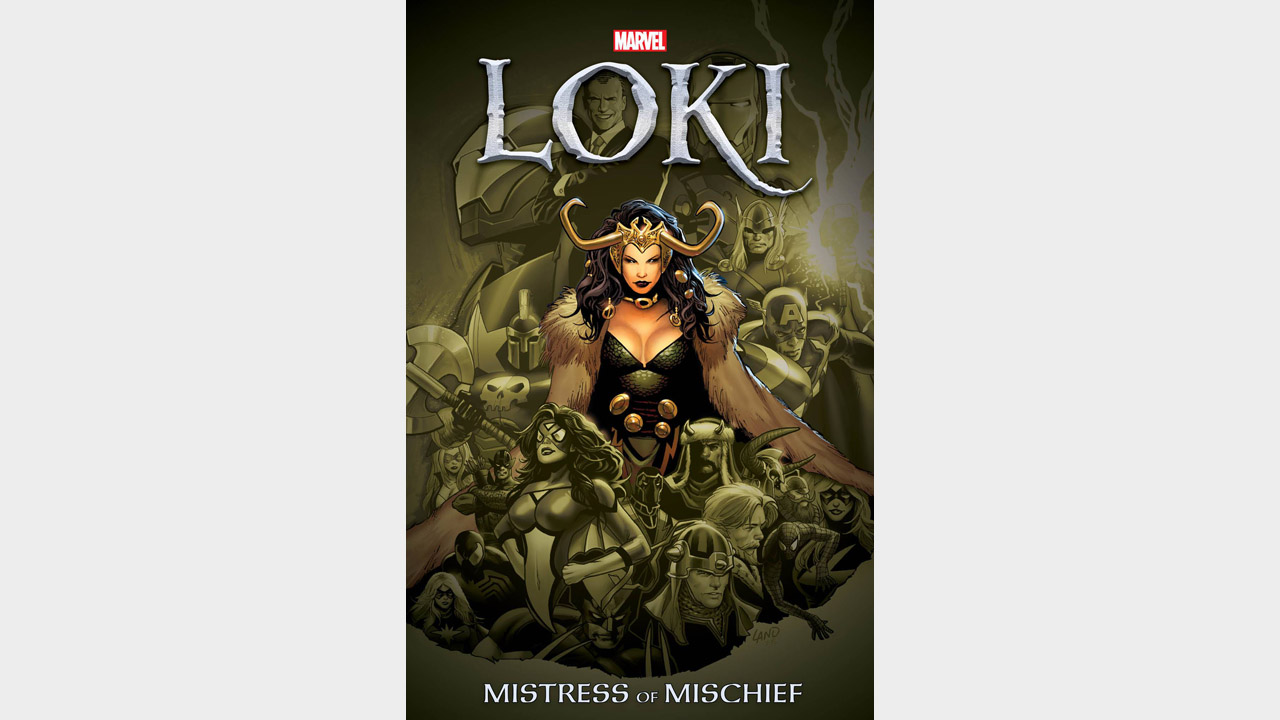
At the same time in the early '00s that the Avengers at large were going through their 'Avengers: Disassembled' break-up and devastation, Thor and the Asgardians went through a cycle of Ragnarok (in the appropriately titled 'Thor: Disassembled'), the recurring process of the death and rebirth of the Asgardians which in comic books often leads to periods of absence from the world or changes in some of the characters.
It's that last bit that is directly related to Loki specifically. Not long after Ragnarok, Thor was reborn as the sole Asgardian around (in a rebooted Thor ongoing title from writer J. Michael Straczynski and artist Olivier Coipel). He searched for his kin, realizing that they were hidden in human form, waiting to be awakened as their true selves. With the help of the awakened Heimdall, Thor tracked the human forms of most of the other Asgardians to a place where they were imprisoned, seemingly by the Asgardian Destroyer (a mindless weapon that can be controlled remotely by anyone with the right spell, seen in the original Thor film).
However, it turned out this was all a scheme by Loki (still in human form), who was partially responsible for the Asgardians entering human forms, and who had gathered them to trick Thor into restoring him to full power - something Loki believed Thor would never do if he knew what he was doing.
But this all came with a twist - Loki was reborn as a woman rather than his usual male form. This isn't at all out of the ordinary for Loki on its face - in Norse mythology, Loki often takes the form of people and creatures of many different genders, and his Marvel Comics history involves plenty of shapeshifting and illusions as well.
(There's a little more to it in this case - with some typically Loki twists on the way - but we'll get there.)
Not all the Asgardians could be found and revived, but with as many of his people as he could muster in tow, Thor then used his godly power to restore the last piece of the puzzle - Asgard itself, which Thor brought to Earth with the realm's capital city of Asgardia floating high above the plains of the small town of Broxton, Oklahoma.
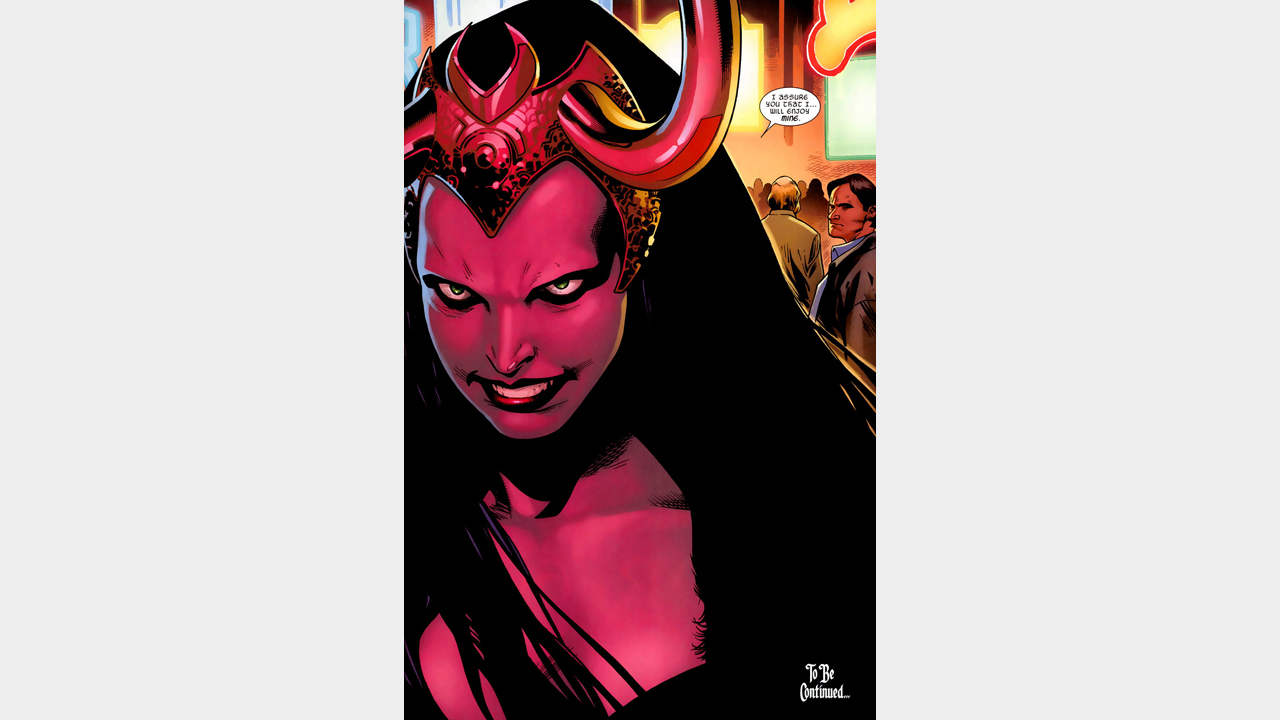
Though Loki claimed that her rebirth had also come with reformation from lies and mischief, even Loki's female form itself was part of a larger scheme which would spell disaster for Asgard once again, just as the realm and its people recovered from Ragnarok.
First Loki manipulated events through a complicated series of time travel adventures and magic rituals to have Balder installed as king of Asgard, and Thor banished from his home.
Joining a secret Cabal of Marvel villains led by Norman Osborn (then the leader of HAMMER, a kind of more aggro version of SHIELD that arose following Secret Invasion, in which Osborn was critical in repelling an alien invasion), Loki began collaborating with Osborn, Doctor Doom, and the rest of the Cabal to relocate the people of Asgard to Latveria.
With Thor banished and her scheme to take Asgard away from Earth and back into its place in the realms of Norse myth underway, Loki revealed her final insult to injury in her plans against Thor.
As it turns out, Loki's new form was no coincidence - nor was the fact that Thor's longtime paramour Sif was among the Asgardians who could not be restored. Loki's female form was in fact the body that was intended for Sif in the Asgardians' rebirth, which Loki essentially stole.
From here things escalate quickly, with Loki returning to his original male form (seemingly to let Sif die, though she was later rescued), and engaging in a bizarre series of manipulations against Osborn, who was also attempting to manipulate Loki. One of these plans even involved organizing a new squad of Avengers while impersonating the then-missing Wanda Maximoff - an illusion that was broken by Wiccan, her reincarnated son.
(Only comic books have family trees like that!)
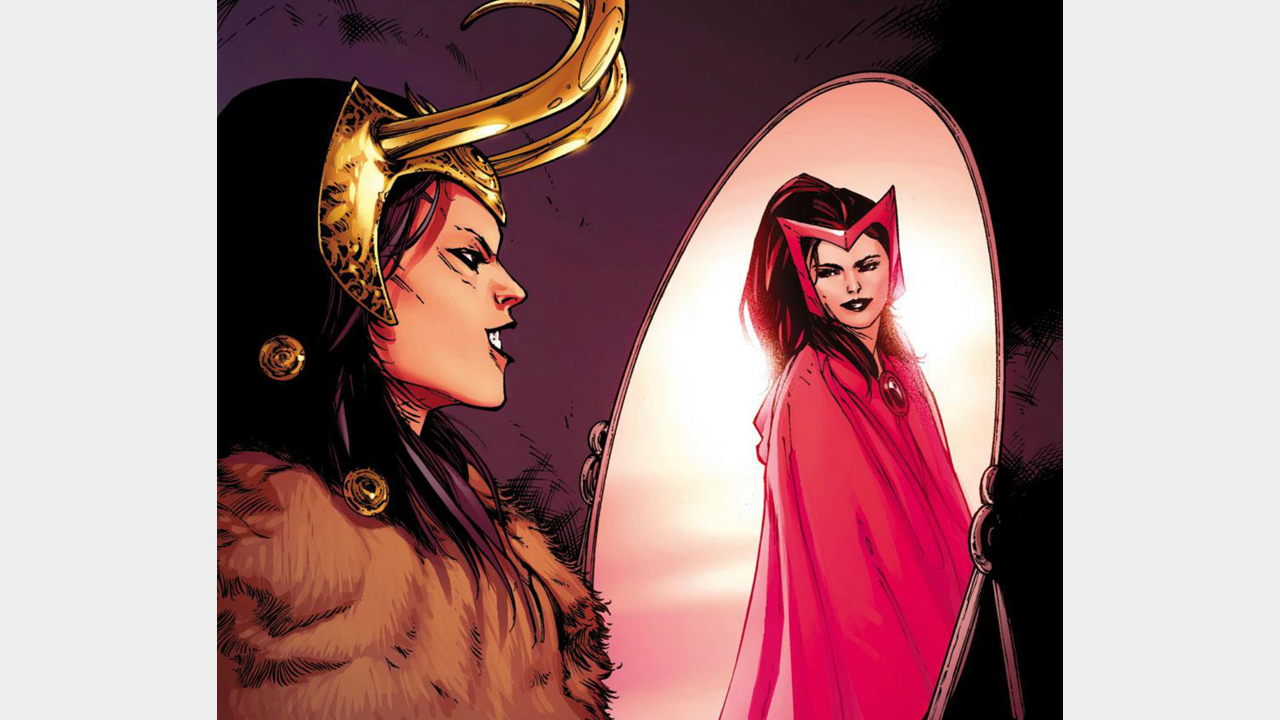
It all culminates in Loki leading Norman Osborn and his burgeoning team of Dark Avengers (villains who took on the identities of heroes as Norman's personal enforcers, kinda Thunderbolts style) in attacking Asgard in the event story Siege, with Loki's plan being to use the powerful Asgardian artifacts the Norn Stones to remove Asgard from the Earthly realm of Midgard and become its new ruler.
But Loki, despite all his machinations, underestimates the viciousness of Norman Osborn and his lackeys, particularly the Sentry, who unleashes his villainous dark side the Void to actually destroy Asgard and send it crashing to the ground, much to Loki's own horror. Using the Norn Stones, Loki fights the Void, but the Void totally obliterates him. Rallying around Thor, who grieves his fallen brother, the Avengers defeat the Void, Osborn, and the rest of his forces to save the day.
And much like with the Marvel Cinematic Universe, in death, Loki's story was only beginning again.
Loki Variant: Kid Loki
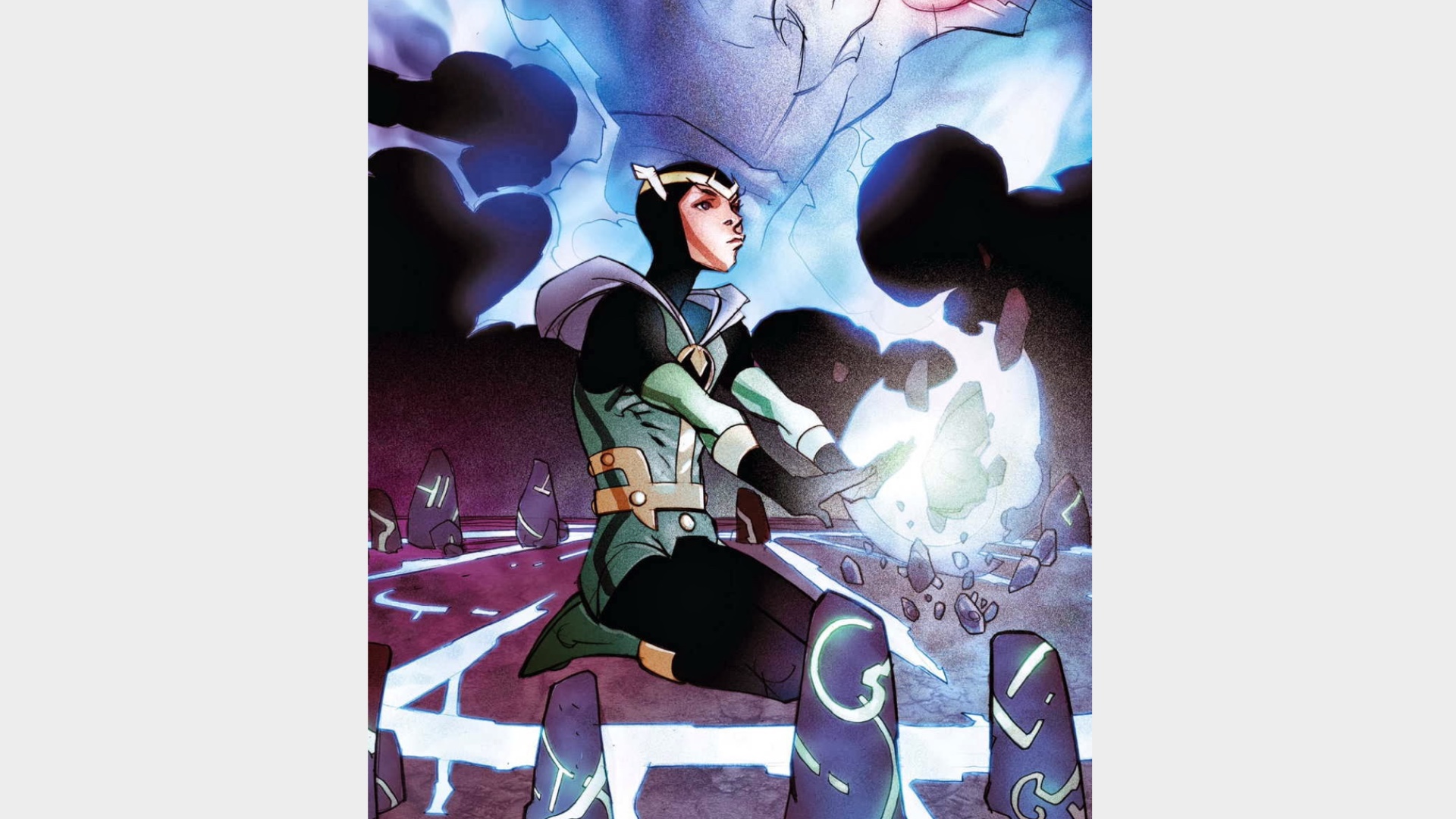
As is the way of the Asgardians, Loki is reborn following his death at the hands of the Void. But this time, things are different - because of the power of the Void, Loki is reborn a fresh soul, with the stains of his past mischief wiped away, in the body of an adolescent child.
Kid Loki (as he's affectionately called) at first has no memories of his previous life, nor access to much of his Asgardian power, though he suffers nightmares fueled by his former life as a villain. Coming under Thor's wing, some of Kid Loki's memories and knowledge are restored, but he remains disconnected from his past, essentially a fully reborn Asgardian.
However, the other Asgardians don't see it this way - his former self was pretty much responsible for the destruction of Asgard, after all - and hold Kid Loki to blame for the acts of his old life. Even Odin, Loki's own adoptive father, holds Kid Loki in great contempt and scorn, leading to a rift between Thor and Odin over Kid Loki's fate.
Despite all this, Kid Loki really does try to turn over a new leaf as a hero, using his natural gifts for trickery to Asgard's advantage even as his family and friends distrust him. When even Thor starts to fear Kid Loki is returning to his old ways, Kid Loki becomes drawn into a mystery of his own which leads him to discover that some essence of his old self still exists, manipulating events behind the scenes in an attempt to be fully reborn in Kid Loki's body.
But Kid Loki rejects his former self entirely, proving he is a different person than his old, villainous self, and uses his own Asgardian sorcery to turn the essence of the evil Loki into a magpie named Ikol, essentially doomed to life as a bird.
Buckle up, cause things aren't getting less weird.
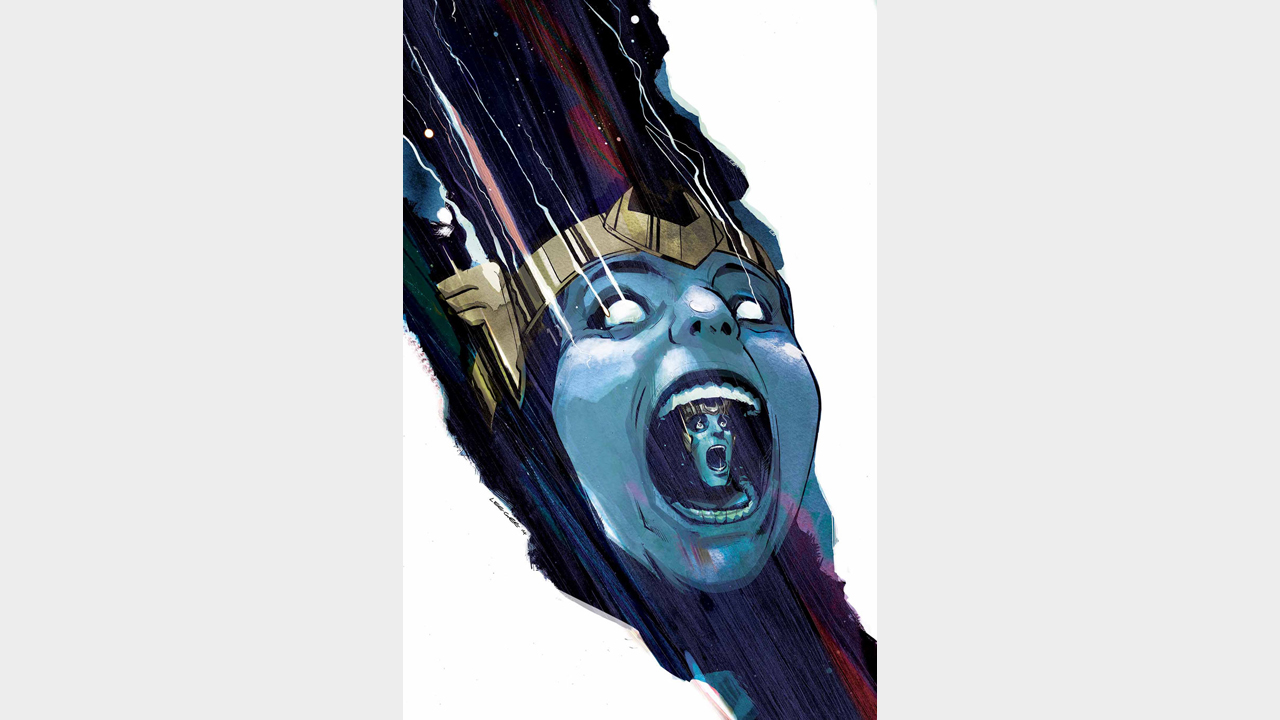
A lot of what happens next is extremely complicated and involves multiple layers of manipulation of Loki and by Loki, with numerous gods and monsters vying for control over Asgard.
First, the Serpent, a lost Asgardian god of fear, arose and created a new, Dark Asgard in the story Fear Itself. At the same time, Odin had rebuilt the original Asgard with the intent of declaring war on Midgard/Earth as part of his plan to defeat the Serpent who was Odin's own brother. Thor is imprisoned by his father for opposing the plan.
Working with Leah, a young sorceress with connections to Hela (whose history is incredibly complicated on its own), Loki frees Thor and begins a web of manipulation that ropes in Hela, Mephisto, Surtur the Fire Giant, and many others - all with a plan to stop the Serpent by rewriting his history.
Loki's plan ultimately works, although his secrets and manipulations once again put him at odds with the other Asgardians, including Thor. As a result, Loki and Leah return to Earth where they encounter Doctor Strange's arch-enemy Nightmare, a psychic being of fear who is collecting the magical fear power of the Serpent to create what Nightmare calls a "Fear Crown," an artifact that will give him immense power and make him the lord of fear - a position that would threaten the safety of reality.
Though Loki and Leah are initially able to defeat Nightmare and the other beings of fear who are fighting over the crown, it surfaces again later, leading to Kid Loki's downfall.
In between Kid Loki's encounter with Nightmare and his eventual end (we'll get there), Kid Loki and Leah encounter Mephisto, the New Mutants, and even a group of ancient British deities known as the Manchester Gods who have connections to the mysterious Otherworld.
All of this culminates in the return of the Fear Crown - this time in Mephisto's possession.
With Mephisto now threatening the fundamental order of reality through the power of the Fear Crown, Kid Loki encounters his older self - seemingly freed from his form as Ikol - who tells Kid Loki that to defeat the Fear Crown he must cease to exist, giving himself over to rebirth with his old self. With one more trick up his sleeve, Kid Loki eats Ikol, absorbing his essence and creating yet another new incarnation of Loki, this time somewhere in between his old self and his younger self.
Loki Variant: Loki the Avenger
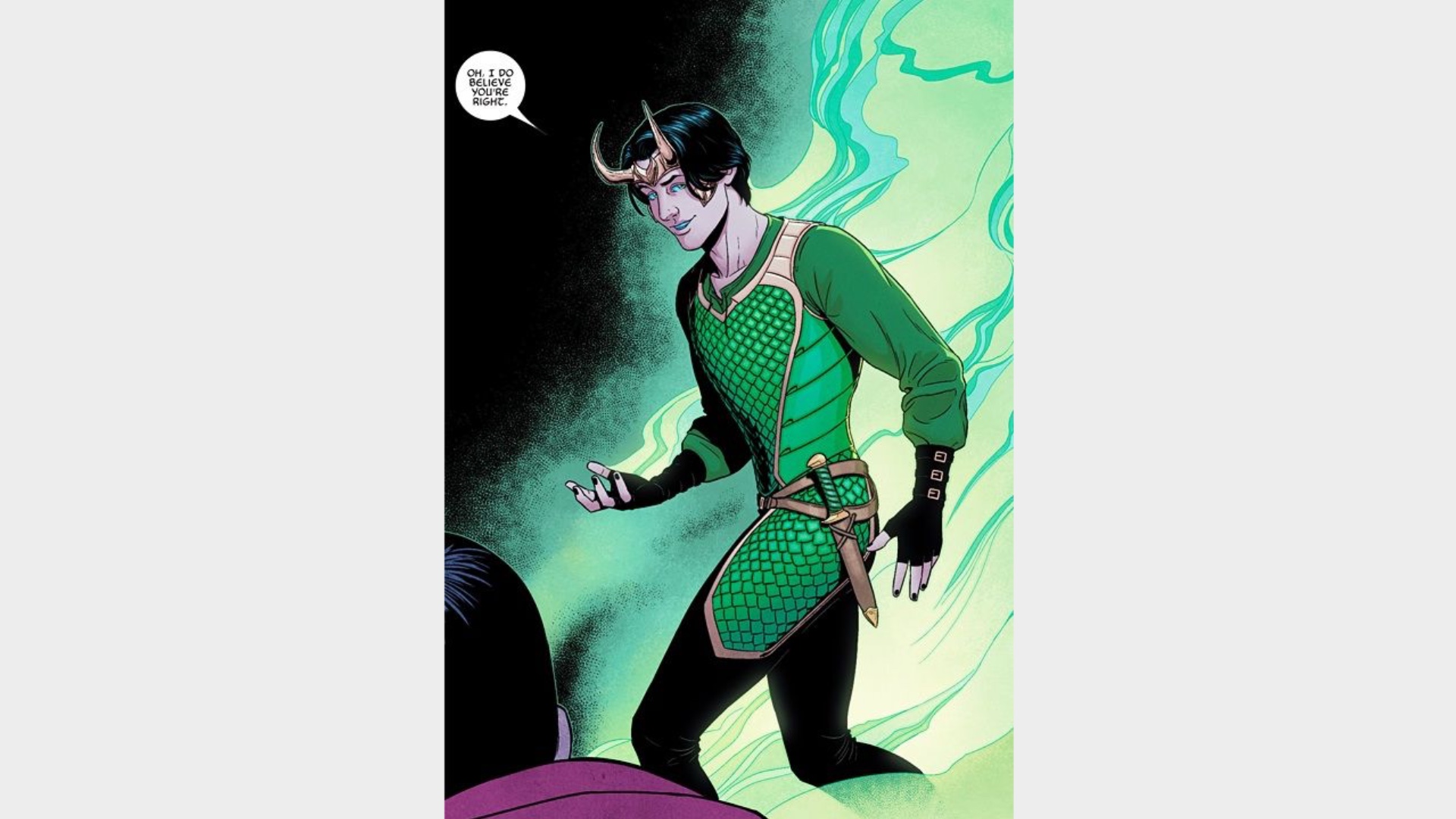
Still in the body of a child, but with some of the memories, powers, and even attitudes of his older self now restored, Loki finds himself embroiled in a new team of Young Avengers including America Chavez, Wiccan, Hulkling, Hawkeye, Noh-Varr, and more - all of whom Loki begins manipulating and lying to, with his deceptive nature even more prevalent now.
Loki helps guide the team, especially Wiccan, in fighting off several high-level magical threats - a process that includes both Wiccan aging Loki into a teen, and Loki activating the magic in Wiccan that will eventually turn him into the Demiurge, a being of pure magical power.
With the team saved from the magical threats against them, Loki's guilty conscience manifests as physical representations of people he wronged in his past, including Leah and his former kid self. Loki eventually confesses his manipulations, including the way he eliminated the previous Kid Loki and lied to the Young Avengers, dispelling the attacking manifestations of his guilt.
Though he feels changed by his experiences with the team, he departs their company, realizing that being Loki - a manipulator and liar - is in his nature, an unavoidable part of his personality that he can only work with, not against, to become the best version of Loki he can.
Loki Variant: King Loki
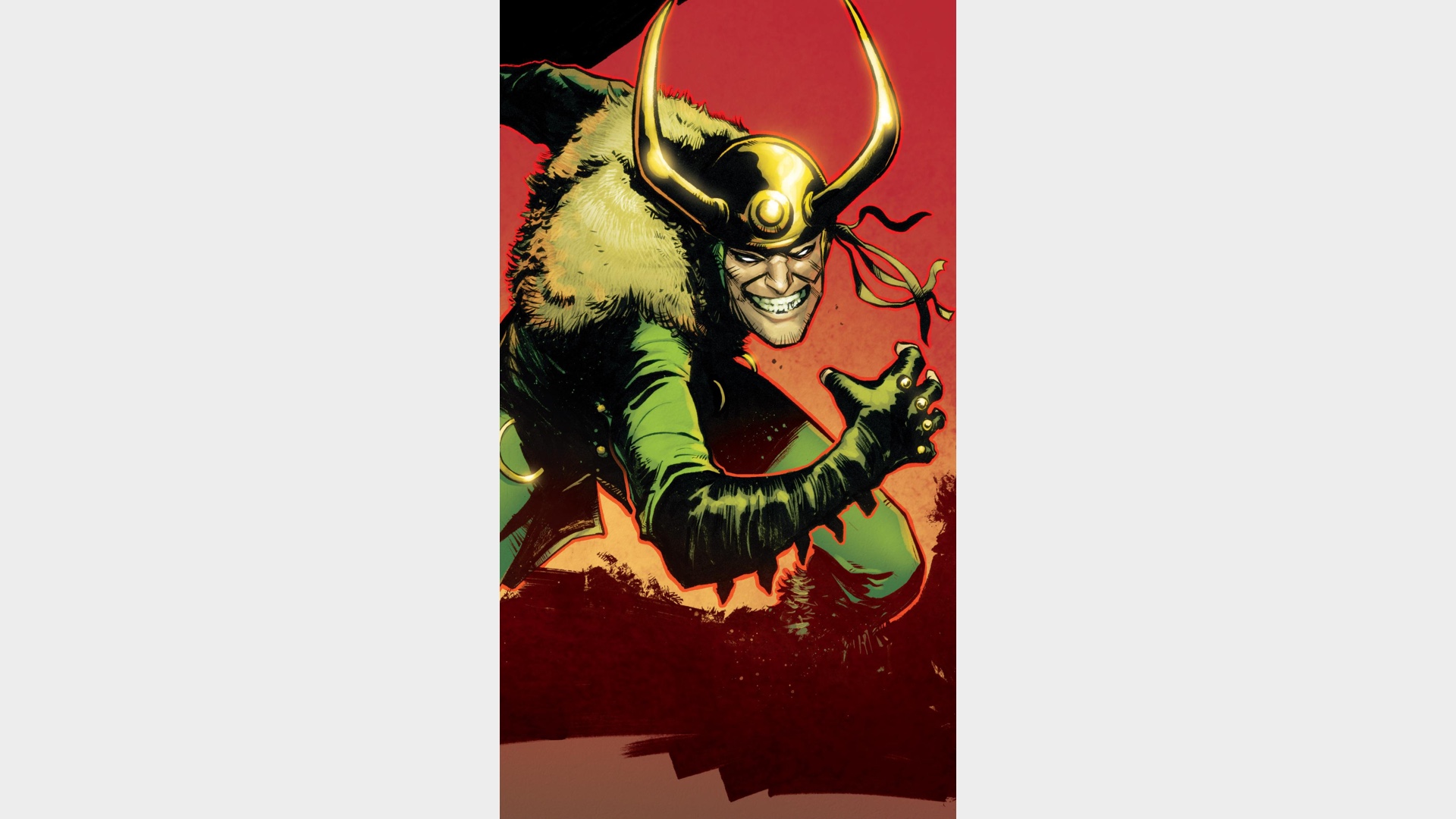
Leaving the Young Avengers behind, Loki returns to Asgard where he takes on a job as a kind of secret agent for the All-Mother, the three-in-one goddess who was ruling Asgard at the time. As Loki: Agent of Asgard, Loki embarks on several missions for the All-Mother that shake his confidence in Asgard and put him at odds with his family and friends once again.
When Loki, during his time as Agent of Asgard, finds himself totally unable to lie, he accidentally confesses all his crimes to Odin, including destroying his younger self. As a result, Odin banishes Loki from Asgard.
Back on Earth, Loki encounters yet another version of himself, a much older villain who wishes to turn the young Loki into himself, ensuring his villainous future. Instead, Loki once again turns the tables, allowing the older Loki (known as King Loki) to destroy him, which leads Loki to be reborn not as the god of lies, but as the god of stories - a slightly different idea that once again pushes Loki away from his dastardly past.
King Loki isn't done yet though, teaming up with the enemies of Asgard to destroy the vaunted realm and seize his place as King. But Loki the younger is undeterred, arriving in Asgard to chase off his older self - a return that wins him favor among the Asgardians who once despised him. However, burned by their previous actions, Loki leaves Asgard, letting its enemies destroy it, using his magic to collect the essence of the Asgardians so they can be reborn.
Things get a little funky here as the Marvel Universe underwent a period of destruction and rebirth in 2015-16's Secret Wars, which rebuilt Marvel's Multiverse. But thanks to his future knowledge and magical power, Loki is aware of what's coming in the Multiverse and excuses himself to a void of darkness alongside the essence of the Asgardians to ride out the changes to the multiverse.
There, Loki confronts King Loki, and the pair seemingly reconcile with young Loki telling King Loki that his influence has allowed him to transcend his dark fate and make a new path. Loki absorbs the essence of his older self and awaits the return of the Marvel Universe.
Loki Variant: President Loki

On the other side of Secret Wars, Loki returns to the Marvel Universe and, first getting once again embroiled in a complex web of politics as Malekith the Accursed attempts to conquer the Ten Realms, Loki eventually returns to Earth to pursue a totally different path - human politics, as told in the story Vote Loki.
Staging an attack on the two leading candidates for president of the United States, Loki ingratiates himself to the public, rising through the polls and becoming a frontrunner for office (though it's not exactly clear how he'll skirt the constitutional requirement that US presidents be born citizens of the U.S.).
Unsurprisingly, it's eventually revealed that Loki has been playing all sides of the election, and even working with his opponents to sow discord and chaos, which leads to Loki conceding the race and essentially helping install a new president.
Loki then goes to outer space to help corral the Infinity Stones - an adventure that leads to his only brief comic book encounter with the Time Variance Authority.
Loki Variant: Sorcerer Supreme
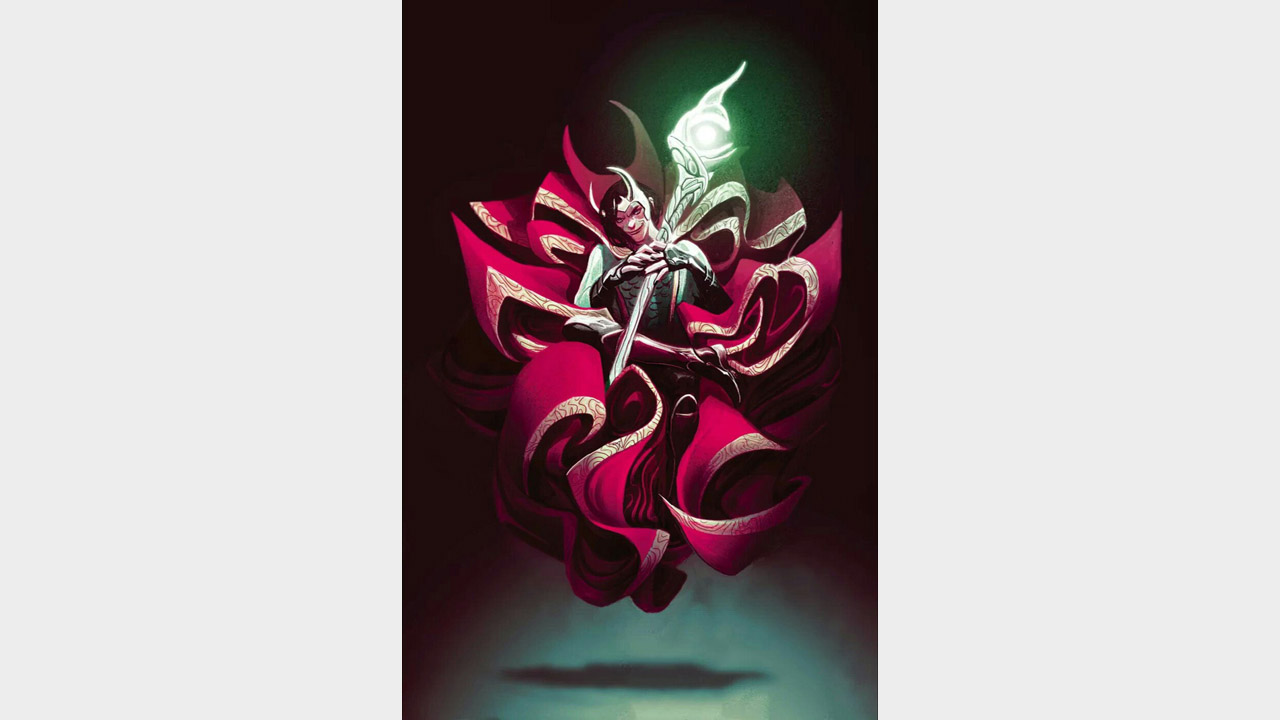
After this, Loki briefly tricks Doctor Strange into giving up the mantle of Sorcerer Supreme, taking it for himself before a battle with the Void, the dark side of the Sentry that previously killed Loki, forces Loki to return the mantle of Sorcerer Supreme to Strange.
Loki then returns to Asgard just in time to get caught up in the War of the Realms, Malekith's invasion of the Ten Realms. Having convinced Malekith that he's on his side, Loki eventually betrays Malekith on behalf of Asgard, a choice that leads Loki to kill his biological father Laufey and briefly assuming rulership of Jotunheim, realm of the frost giants.
Bored of his rulership, Loki ventures to a place called the House of Ideas (yes, it's a meta in-joke based on Marvel Comics' nickname for itself) where the histories of many heroes are stored. Using his magic, Loki makes a deal to have his story rewritten to that of a hero, which comes at the cost of knowing he will eventually die a hero's death.
Returning to Earth, Loki confronts Nightmare again - a battle that leads to his imprisonment on the Raft. However, true to his nature, Loki escapes imprisonment and decides that he is now the god of outcasts.
And that pretty much brings things up to speed with where Loki is now - though given his nature as a shapeshifter and trickster, his status quo rarely stays in place for long.
Loki Variants in the MCU
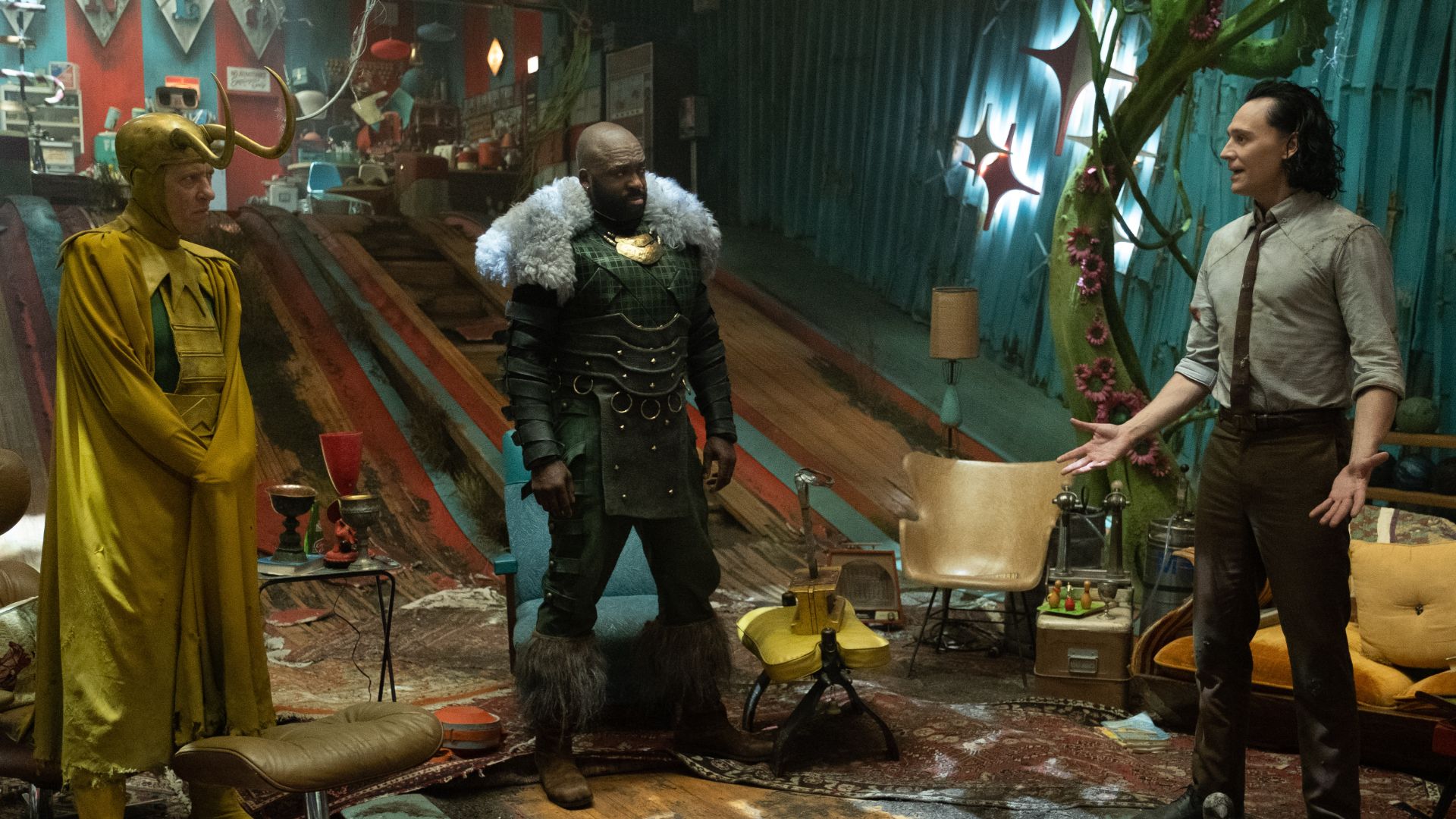
Loki season 1 featured a whole host of variant versions of the Asgardian trickster, starting with Tom Hiddleston's leading man, himself a variant of the main MCU Loki. It's easy to forget that Hiddleston's lead Loki is actually a variant, whose history diverges from the core version we saw die in Avengers: Infinity War - but with this main Loki variant arriving in an alt-universe TVA in the show's final scenes, that idea may come back into stark focus in Loki season 2, if not before.
Then there's Sylvie, the MCU's adaptation of Lady Loki, who was somewhat merged with the Marvel Comics character Sylvie Lushton, AKA the Enchantress, shown mostly in her alias of 'Sylvie' and her powerful skills of mesmerism and illusion. Sylvie's fate is left unseen in the finale of Loki season 1, with her last seen in the wake of killing He Who Remains. But Sophia Di Martino's breakout character seems to have a major role yet to play in the MCU - one that could potentially go on to bring in more of Lady Loki and Sylvie Lushton's comic book context as part of the fall of Asgard in the story Siege.
Speaking of which, Siege is the story in which Loki is killed by the villain known as The Void, leading to his rebirth as Kid Loki. Oddly enough, the MCU's version of Kid Loki is identified as the 'king' of the realm known as The Void by his fellow variants, and the wreckage of a fallen Asgard is shown, potentially indicating the MCU Kid Loki's story isn't all that different from the comic book version.
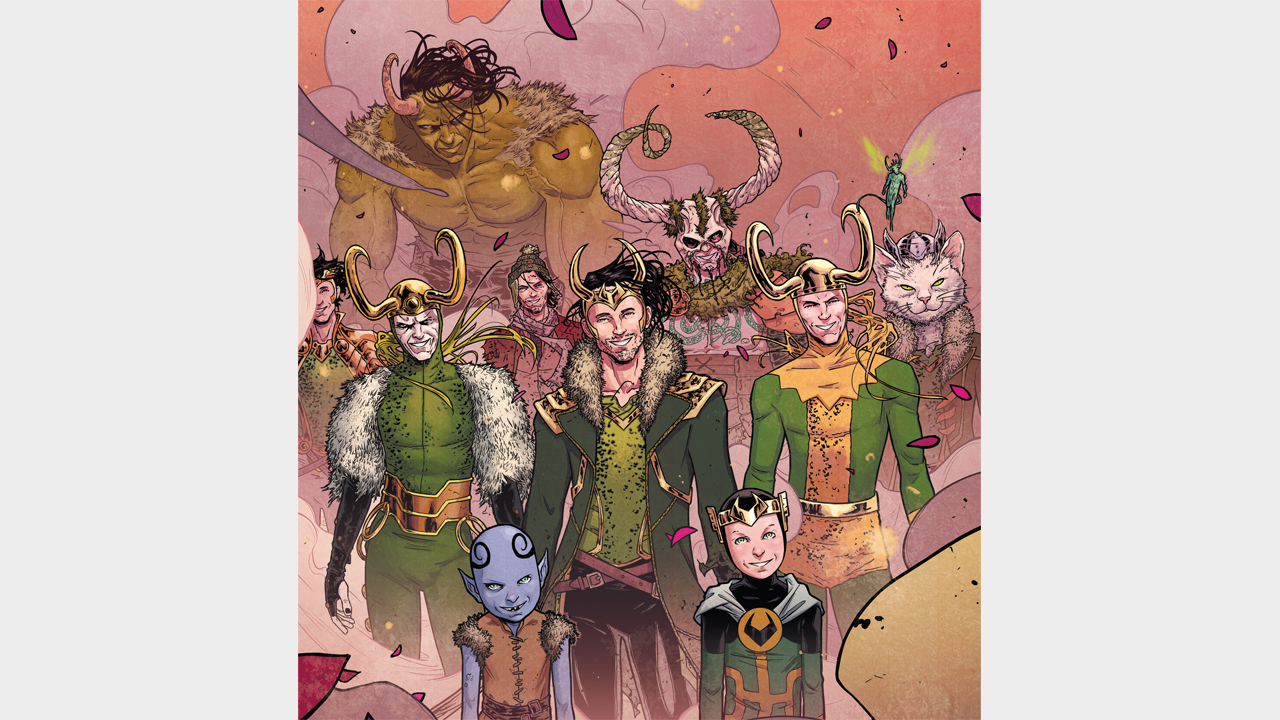
On that note, Kid Loki is a key player in one incarnation of the Young Avengers, whose members such as Stature, Wiccan, Speed, and Patriot have made it into the MCU in their civilian identities, with more Young Avengers including Kate Bishop, America Chavez, and Riri Williams already planned to appear in upcoming shows and films. Could Kid Loki's MCU future lie in a Young Avengers franchise?
Classic Loki (played by Richard E. Grant), who bears a striking resemblance to the Silver Age comic book Loki and whose story seems to be a variant continuation of the main MCU Loki, is the last major MCU Loki variant who could potentially play a big role moving forward. As a master of illusion, there's nothing but possibilities for how he could return, or have even never actually died when he was shown being devoured by Alioth. Considering his story apparently branches off directly from the main Loki, as does Hiddleston's lead variant Loki on the show, Classic Loki could play a part in resolving the concept of multiple Lokis in the MCU.
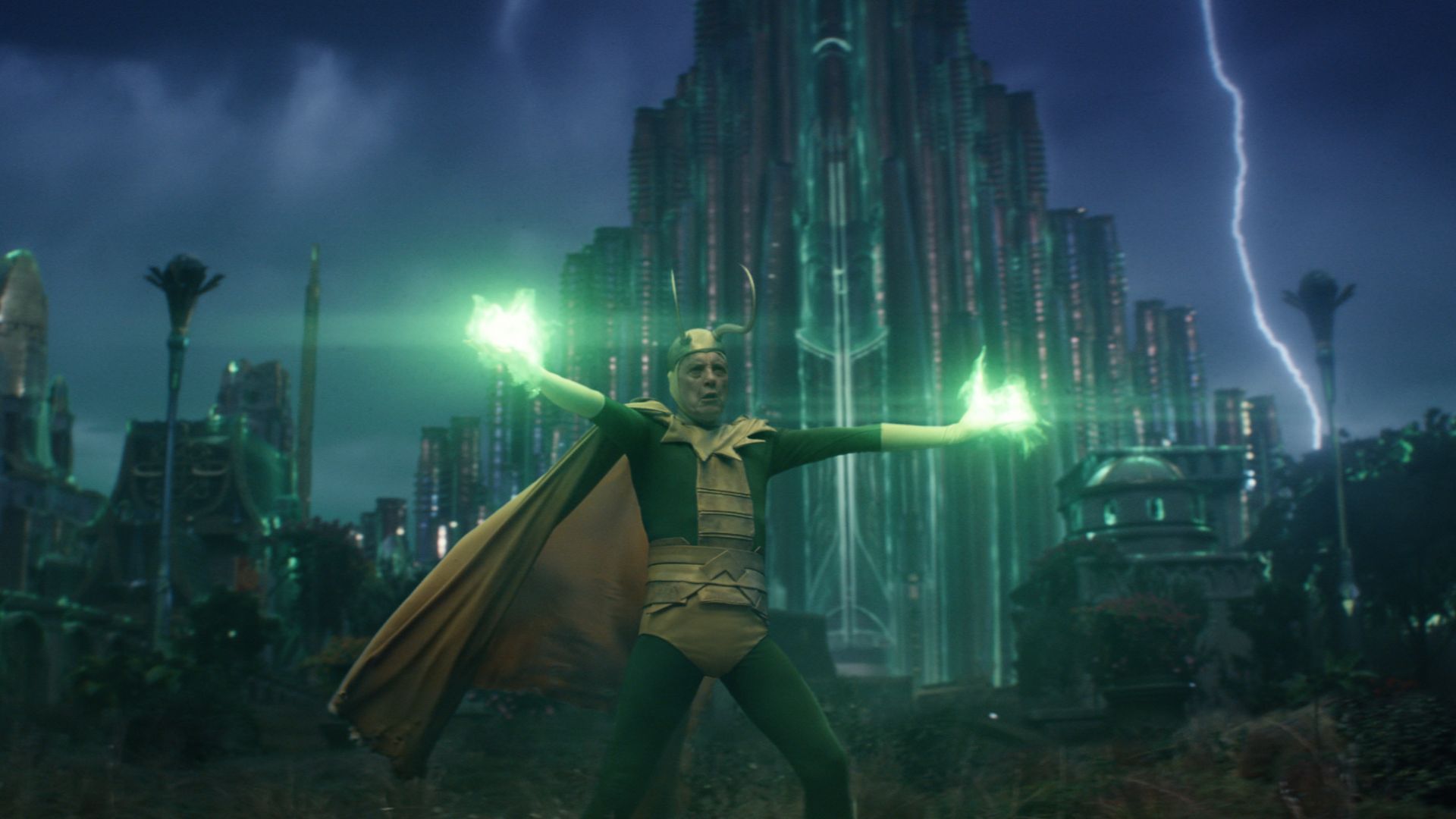
There are other Lokis to consider, as well. Few fans would not be delighted by the return of the enigmatic Lokigator, perhaps squaring off with Frog Thor who was glimpsed in a Loki Easter egg. And Boastful Loki has tremendous potential as a character created for the MCU, a blank slate for a potential future tale. Then there's Vote Loki, who may have died, and his army (some of whom may have been Lokis themselves), any of whom who could come back, given the nature of the story at hand.
Of course, several of these variants appear in the Newsarama's list of the best Loki stories of all time.
I've been Newsarama's resident Marvel Comics expert and general comic book historian since 2011. I've also been the on-site reporter at most major comic conventions such as Comic-Con International: San Diego, New York Comic Con, and C2E2. Outside of comic journalism, I am the artist of many weird pictures, and the guitarist of many heavy riffs. (They/Them)
